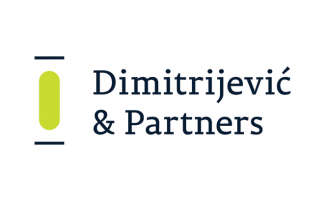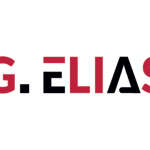1. What are the key regulatory bodies and authorities overseeing the banking and finance sector in Bosnia and Herzegovina, and what are their primary responsibilities?
It should be noted that regulatory bodies and authorities overseeing the banking and finance sector in Bosnia and Herzegovina (BH)1 are established on the state level, ie BH level and on the level of BH sub-jurisdictions, namely Republic of Srpska (‘RS’) and Federation of Bosnian and Herzegovina (‘FBH’).
- On the BH level these bodies are: (i) Central Bank of BH (CBBH), which is primarily responsible for monetary policy and issuance of domestic currency (BAM) and (ii) Deposit Insurance Agency of BH, which is primarily responsible for the protection of deposits placed in banks in BH.
- On the level of RS key regulatory body is Banking Agency of the RS (‘BARS’), and on the FBH level Banking Agency of FBH (‘FBA’). Primarily duty of both agencies is licensing and supervision of banks and financial institutions. Banks in BD could opt to be supervised by either BARS or FBA.
2. How has the legal framework for banking and finance evolved in Bosnia and Herzegovina in recent years, and what are the major legislative developments impacting the sector?
BH strives to align its legal framework with the EU acquis. In 2017, both RS and FBH enacted new laws on banks regulating establishment, operations, management, supervision, restructuring and liquidation of banks located at their territories. Pursuant to the recent legislative developments:
- the growth of interest rates above certain levels is conditioned by additional allocation for provisions. The aim of these interventions is to slow the growth of interest rates and mitigate credit risks; and
- the banks are obliged to report to the banking agency on the Net Stable Funding Ratio (NSFR). The minimum required level of the NSFR according to the Basel Committee is at least 100% on a daily basis. At the end of the third quarter of 2022, all banks in BH recorded significantly higher values of the NSFR than the minimum prescribed.
3. Can you provide an overview of the licensing and regulatory requirements for foreign banks or financial institutions looking to operate in Bosnia and Herzegovina?
Foreign banks and financial institutions wishing to operate in BH must incorporate a legal entity in BH and obtain a domestic banking license. To obtain such a license foreign banks and financial institutions must meet the requirements stated in the law on banks of RS/FBH (as applicable).
Foreign banks and financial institutions could open a representative office which cannot perform banking operations but serves as an organisational part for presentation of such foreign banks and financial institutions. The opening of the representative office requires approval from BARS/FBA.
4. What are the key compliance and anti-money laundering (AML) regulations in place to combat financial crime and ensure the integrity of the banking and finance sector?
Key AML regulation in BH is law on prevention of money laundering and financing of terrorism enacted at the level of BH. This law, inter alia, regulates measures and procedures that must be undertaken for the purposes of prevention of money laundering and financing of terrorism.
In 2012, both BARS and FBA enacted decisions regarding minimal standards that banks should apply with respect to their AML obligations.
5. How does Bosnia and Herzegovina handle cross-border financial transactions and international banking relationships within the context of EU integration?
BH applies full current account convertibility. Performance of cross-border financial transactions is free unless prohibited pursuant to the foreign exchange laws.
Pursuant to the EU Commission Report for BH for year 2022, BH needs to adopt legislation to align with the EU acquis to be able to adhere to the Single Euro Payment Area schemes for communities of banks or financial institutions outside the European Economic Area.
6. What are the major challenges and opportunities facing legal practitioners specialising in banking and finance law in Bosnia and Herzegovina today?
In BH, banking and finance law is still considered as an ‘uncharted territory’ with little to no case law on the legal instruments usually applied in the banking and finance transactions (eg parallel debt concepts, syndicated loans). Thus, the legal practitioners are faced with the challenge of adjusting respective legal instruments to rather conservative local law requirements to serve the needs of their clients. These challenges are at the same time opportunities for legal practitioners to participate as pioneers of a new legal practice.
7. Can you discuss recent trends in dispute resolution within the banking and finance sector, including arbitration and litigation, and any notable cases?
In general, lower courts show less understanding of modern banking and finance sector. In one case, the local court obliged BH branch of UniCredit to compensate roughly EUR€130m to a client engaged in crypto-business because the bank allegedly did not have a legitimate reason to close the client’s bank account. This judgment was overturned by the higher court. However, the case is now before the Supreme Court of RS and the outcome is still unclear. In another case, the lower courts declared as void loan agreement clause pursuant to which a bank is entitled to the loan processing fee. The Supreme Court of RS overturned such court decisions stating that such clause is not per se null and void.
8. How are financial instruments and securities regulated in Bosnia and Herzegovina, and what are the key considerations for investors and financial institutions?
Financial instruments and securities are regulated at the level of RS and FBH and at the level of BD. Both RS and FBH adopted their laws on securities market, while BD adopted law on securities. In general, these laws regulate registration of securities, trade with securities and supervision of activities with securities.
Trading with financial instruments and securities is enabled at Sarajevo Stock Exchange in FBH and Banja Luka Stock Exchange in RS. Publicly available information indicates that the:
- RS capital market is not classified pursuant to the FTSE Global Equity Index Series classification. The RS capital market is characterised by relative openness and accessibility for foreign investors, but also possible higher economic and political instability, potentially higher long-term returns; and
- FBH capital market is not in good shape and the quantity and variety of marketable material is limited.
9. Are there specific regulations or guidelines governing fintech companies and digital banking services in Bosnia and Herzegovina, and how are they evolving to accommodate innovation?
The RS law on securities market contains articles relating to provider of services related to virtual currency, but only with respect to compliance with AML regulation. In RS services related to virtual currencies could be provided only by the entities registered with the RS Securities Commission. Such registration is regulated pursuant to the rulebook on the record of service providers related to virtual currencies in RS.
Use of fintech by banks should be reported to BARS pursuant to the BARS instruction for reporting on the management of information systems in banks. In general, the following should be reported to BARS: scope of usage of fintech and information on provider of fintech services to banks (if any).
Furthermore, FBA’s decision on management of externalisation in banks provides that banks should consider risks of fintech when deciding on externalisation of its activities.
10. What is the current state of mergers and acquisitions (M&A) activity in the banking and finance sector in Bosnia and Herzegovina, and what legal aspects should be considered in such transactions?
One of the last M&A activities included the acquisition of two Russian-owned Sberbank subsidiaries in BH in the first half of 2022. This was not an ordinary acquisition and was triggered by the global events between Russia and Ukraine. The BARS and FBA, each within its competences, in a short period of time took over these banks and then sold them to local banks. These acquisitions demonstrated the real power of banking agencies and raised legal concerns relating to the protection of the rights of shareholders in BH banks.
The following appears to be important in BH M&A transactions: (i) regulatory compliance; (ii) competition law aspects; and (iii) protection of shareholder’s rights in case of ‘expropriation’ of banks.
For more information contact

Nina Vjestica, Partner
E: nina.vjestica@dimitrijevicpartners.com

Djordje Dimitrijevic, Senior associate
E: djordje.dimitrijevic@dimitrijevicpartners.com

Lana Samardzija, Junior associate
1BiH is comprised of: (i) two entities – Republika Srpska (RS) and Federation of Bosnia and Herzegovina (FBiH); and (ii) Brčko District (BD).














